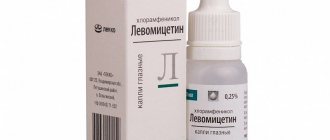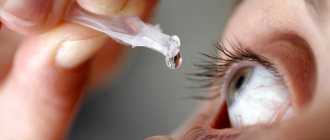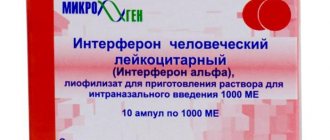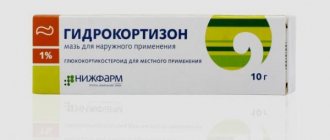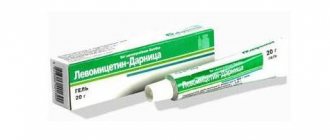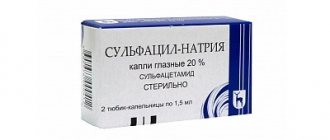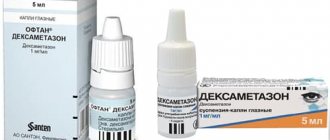Release form
Produce:
- Tablets - 5 mg.
- Cavinton forte tablets - 10 mg.
- Concentrate for the preparation of solution for infusion.
The tablets are round in shape, milky or white in color. The active component is vinpocetine, its concentration in one pill is 5 milligrams. In addition, the drug contains additional substances, which include:
- Magnesium salt of stearic acid.
- Lactose monohydrate.
- Silica.
- Starch.
- Talc.
The medication is packaged in blisters of 25 pieces. There are a total of 50 tablets in the package.
Cavinton
The drug Cavinton was created in the 60s of the last century by pharmacologists of the Hungarian pharmaceutical giant Gedeon Richter. Vinpocetine, the active ingredient in Cavinton, is a semi-synthetic version of the alkaloid vincamine, which was found to have a vasodilating effect. Later, its particular usefulness in cerebrovascular disorders was established, which motivated scientists to create a new drug. Today, Cavinton is widely used in 50 countries around the world, including, naturally, Russia. The main indication for the use of Cavinton is chronic cerebrovascular accidents, but in recent years the drug has found its niche in clinical practice in acute forms of this cerebral pathology. Cavinton's ability to affect blood vessels is determined by its effect on the cellular metabolism of cyclic nucleotides in the smooth muscle vascular wall through inhibition of the enzyme Ca2/calmodulin-dependent phosphodiesterase. As a result, the “cAMP/cGMP” ratio changes in favor of the first substance, which leads to relaxation of the walls of blood vessels in the brain, prevents the adhesion of white blood cells and improves the rheological properties of blood. The obvious advantage of Cavinton is the selectivity of its action: it has virtually no effect on systemic circulation. That is, stimulation of cerebral blood flow and a decrease in cerebral vascular resistance occurs against the background of constant blood pressure, stable heart rate and other functional indicators of cardiovascular activity.
Cavinton does not cause the so-called “steal” phenomenon (worsening ischemia in the area of the affected vessel due to the outflow of blood to neighboring areas), but, on the contrary, stimulates blood flow in the affected area without changing it in areas not affected by ischemia. Cavinton intensifies metabolism and increases the energy reserves of the brain by optimizing the utilization of oxygen, glucose and increasing the rate of ATP formation. The drug has neuroprotective (reducing the toxic effect of oxygen starvation in nerve cells) and antioxidant properties. By the way, in terms of antioxidant activity, Cavinton is superior to drugs such as piracetam and pentoxifylline. In summary, it should be noted that the effectiveness of Cavinton was confirmed in 7 double-blind placebo-controlled studies, which undoubtedly gives every reason to classify the drug as a pharmacological arsenal of evidence-based medicine.
Cavinton is available in two dosage forms: tablets, which are disproportionately more popular among the population, and a concentrate used mostly in hospitals for preparing a solution for infusion. Tablets are taken after meals three times a day, 5-10 mg, with a daily maximum of 30 mg. A noticeable effect is observed approximately on the 7th day from the start of administration. The duration of the pharmacological course is 1-3 months.
Pharmacological properties
Vinpocetine has a combined effect on brain tissue, which includes a number of effects, for example:
- Increased elimination of glucose and oxygen.
- Increased resistance of neurocytes to reduced oxygen supply.
- Improving the transport of glucose from the blood to the brain tissue across the blood-brain barrier.
- Increasing the content of adenosine triphosphoric acid in the tissues of the structures of the nervous system, which is considered the main source of energy.
- Antioxidant effect due to activation of the ascending branch of the noradrenergic system.
- Decreased platelet aggregation, which leads to increased rheological properties of blood.
- Improving the ability of red blood cells to change, which facilitates their passage in the vessels of the microvasculature.
The active substance improves cerebral microcirculation without affecting the general indicators of the functional activity of the cardiovascular system.
After taking the drug orally, vinpocetine is quickly and completely absorbed into the blood from the lumen of the upper digestive organs. It distributes evenly throughout the tissues of the body and passes well through the blood-brain barrier.
The active component of the drug is excreted mainly through urine, and partly through feces. The half-life varies from 4 to 5 hours.
special instructions
Before using Cavinton, it is recommended that you read the following special instructions:
- The tablets contain lactose (41.5 mg of the substance in 1 tablet). If you are lactose intolerant, the composition should be taken into account.
- Vinpocetine (the active ingredient) can limit the use of Cavinton. A ban on the use of the medication is imposed by fructose intolerance, as well as a deficiency of a special compound - 1,6 fructose diphosphatase.
- Patients with long QT syndrome who are taking QT prolonging drugs should have regular ECGs.
What is the drug for?
The use of Cavinton is indicated for the combined treatment of a number of diseases, which include:
- Ischemic stroke (impaired microcirculation of the brain with disruption of brain tissue, as well as its functions as a result of difficulty or cessation of blood flow to one or another department).
- Cerebral atherosclerosis (a pathological process in which the arteries of the brain are affected by cholesterol plaques).
- Transient ischemic attack (temporary disruption of cerebral circulation, which leads to disruption of brain function with subsequent recovery).
- Vegetative-vascular dystonia (a complex of functional disorders based on a violation of the regulation of vascular tone by the autonomic nervous system).
- Vascular dementia (a disorder characterized by a persistent decrease in intelligence and impaired social adaptation).
- Post-traumatic or hypertensive encephalopathy (chronic damage to brain tissue, which is characterized by disturbances of cerebral hemodynamics in patients with long-term, poorly controlled hypertension).
- Ophthalmological pathology.
- Retinal artery or vein occlusion (clogging of the central vein or retinal artery by an embolus or thrombus).
- Pathology of the inner ear.
In addition, the drug is used for hearing impairment and the presence of idiopathic noise in the hearing organs.
Indications for use of the drug "Cavinton"
Since the medicine has relatively low durability and proven effectiveness, doctors prescribe it for many brain pathologies. In addition, it is also taken for some ophthalmological and otorhinolaryngological diseases. It is worth understanding that this drug has a serious effect on the body, so you cannot take it without permission without first consulting a specialist. It’s not for nothing that it is sold in pharmacies only by prescription.
What are Cavinton tablets usually taken for? In neurology, they are prescribed to patients suffering from insufficient blood supply to the brain. The drug is taken to eliminate or reduce the severity of symptoms and mental disorders that may be caused by this pathology. Poor circulation, in turn, can occur due to an ischemic or hemorrhagic stroke. It can also be triggered by vascular dementia, cerebral atherosclerosis and encephalopathy caused by any serious injury or advanced hypertension.
In ophthalmology, the drug is taken to treat chronic pathologies of the retina and its choroid. As a rule, it is prescribed for the treatment of occlusion of an artery or vein. This is thrombosis, so reducing blood viscosity and improving blood circulation contribute to the resorption of the blood clot. The drug may also be effective in the treatment of tinnitus, usually idiopathic.
What restrictions exist?
The use of the drug is contraindicated in a number of pathological and physiological conditions of the body, which include:
- Acute course of hemorrhagic stroke (acute disruption of cerebral microcirculation with vascular breakthrough and hemorrhage in the brain).
- Severe coronary heart disease (organic and functional damage to the heart muscles, provoked by a deficiency or cessation of blood supply to the myocardium).
- Breast-feeding.
- Severe forms of arrhythmia (pathology that leads to a failure in frequency, as well as the rhythm and sequence of excitation and contraction of the myocardium).
- Brain aneurysm (small abnormal formation in blood vessels).
- Increased sensitivity to the active component of the drug or additional substances.
- Impaired breakdown or absorption of lactose.
- Pregnancy.
- Angina pectoris (attacks of sudden chest pain that occur as a result of an acute lack of blood supply to the heart muscle).
- Age up to 18 years.
Before starting therapy with Cavinton, you must make sure that there are no restrictions on its use.
Indications
The cerebral circulation stimulator, Cavinton, has a relaxing effect by dilating the walls of blood vessels. As a result of use, metabolic processes (norepinephrine and serotonin) in brain tissues also improve, the blood becomes more fluid, and erythrocyte plasticity increases.
These properties are useful in the treatment of neurological and mental diseases characterized by impaired blood flow in the brain.
Indications for the use of Cavinton are diseases in which the following are observed:
- memory disorders;
- speech defects;
- migraine;
- stable increase in blood pressure;
- increased vascular tone;
- constant dizziness.
Such pathological conditions often occur after a stroke, during menopause, with traumatic brain injuries and with the development of atherosclerotic diseases.
The drug can also be used in ophthalmology:
- for atherosclerotic disorders in the retina or blood vessels of the eye;
- with degenerative processes of the macula;
- for relapses of glaucoma (in case of blockage of blood vessels).
Cavinton is not used for high blood pressure with the express purpose of lowering blood pressure. The effect of the drug is strong, so it is used only as prescribed by the attending physician.
Contraindications
The drug Cavinton has a number of contraindications. Before starting therapy, the doctor must ensure that there are no risks to the patient's health. When taking the medication yourself, be sure to familiarize yourself with the contraindications.
The drug is not recommended for use:
- with a complex form of arrhythmia;
- for ischemic heart diseases;
- during pregnancy.
It is not advisable to take Cavinton if you have low blood pressure and unstable blood pressure. The medicine is also not prescribed together with heparin when administered by injection.
How to take the medicine
The tablets should be taken orally after meals. They are taken whole, without chewing, with water. The average daily dosage ranges from 15 to 30 milligrams, divided into 3 doses.
The initial concentration is 15 mg. The pharmacological effect appears on average a week after the start of treatment. The average duration of therapy ranges from 1 to 3 months. In case of kidney or liver pathology, there is no need to reduce the concentration of the active ingredient Cavinton.
Instructions for use, dosage
The rules for taking the drug for its various forms are set out in the table below.
| Options | Regular tablets | Tablets that dissolve in the mouth | Injections |
| Time of receipt | After meal | In the first 3 hours after preparing the solution | |
| Daily dose | 15-30 mg (5-10 mg in 3 doses) Initial dosage – 15 mg The maximum daily dose is 30 mg. | 1 piece each 3 times a day | The initial daily dose is 20 mg (2 ml each) in 500 ml of infusion solution. |
| Peculiarities | For pathologies of the liver and kidneys, the dose is not reduced | It is allowed to swallow whole with a small amount of water. For pathologies of the liver and kidneys, the dose is not reduced. | Only intravenously and in dilution (saline or other solutions) |
Cavinton, according to reviews from patients who took the drug and clinicians, is highly effective at a dosage in the range of 10-50 mg per day. When it increases, the therapeutic effect no longer increases significantly.
For elderly patients with neurodegenerative changes, long-term treatment of up to 3 months or longer is indicated. In patients of the general category, the greatest therapeutic effect is shown by a dose of 10-20 mg 3 times a day.
https://www.youtube.com/watch?v=8FF7rDMrG3A
Use in pediatrics
The drug is not officially prescribed for the treatment of children, as it can cause serious side effects. According to the instructions, Cavinton is contraindicated for this category of patients, but in exceptional cases doctors prescribe it. For example, to eliminate seizures in young patients, a solution is used intravenously.
The maximum allowed daily dosage is 8-10 milligrams (maximum 1 mg per kilogram of weight). Therapy is carried out for some time, after which they switch to tablets - they can be used for 1-3 months. Parents of children note that, as a rule, the medication is well tolerated by children, but sometimes anxiety and worsening sleep occur.
The main indications for the use of Cavinton in children are considered to be the elimination of hearing loss and vision problems caused by vascular pathologies. In addition, this medication is included in complex treatment for epileptic disorders.
Is it possible to give Cavinton to children under one year old?
Children, especially infants, are a very fragile category; most medications are contraindicated for them. However, leaving their developing diseases without proper attention is no less dangerous. Therefore, Cavinton is used in medical practice to treat babies from the first month of life, despite numerous controversies and discussions.
Babies under one year old
The drug is prescribed to babies in extremely rare cases, when, in the opinion of the doctor, the benefits of it significantly outweigh the risk of side effects, and the lack of treatment threatens with serious consequences. It must be said that when making such a conclusion and prescription, the doctor takes on a very great responsibility and must constantly monitor the condition of the little patient.
Many health problems in childhood are associated with oxygen starvation of the brain, the cells of which simply cannot develop properly if there is a lack of oxygen and other nutrients. This disease is called Encephalopathy; if it is diagnosed during intrauterine maturation of the fetus or in the first week after birth, it is called perinatal.
With proper and timely treatment, the severity of the consequences can be minimized. Without it, the child may have lifelong symptoms such as headaches, hearing loss or vision problems, neurological disorders and other problems, including epilepsy and cerebral palsy.
Thus, before prescribing Cavinton to an infant, the neurologist carefully weighs all the pros and cons, weighs the possible risks of treatment and its absence. Parents in this situation can be advised: find out from the doctor the reason for his decision and the exact diagnosis of the child. If the degree of trust in the doctor is not too high, it is worth consulting several specialists.
Katadolon tablets - what is important to know about their use
Indications and side effects of Cavinton during pregnancy and breastfeeding
The drug is prohibited during pregnancy, since vinpocetine crosses the placenta. Moreover, its level in it and in the blood of the fetus is lower than in the blood of a pregnant woman. At high concentrations of the drug, placental bleeding or spontaneous abortions are possible.
Within an hour, 0.25% of the taken drug penetrates into the milk. When using Cavinton, lactation must be stopped. The medication is very rarely prescribed to children under 18 years of age.
"Cavinton" with VSD
Despite the fact that the effectiveness for eliminating neurocirculatory dystonia has not yet been confirmed, it is nevertheless believed that this drug has a good pharmacological effect in this disease.
Factors that cause the development of vegetative-vascular dystonia include brain injuries, as well as chronic intoxication with harmful substances, overwork, and abuse of drugs that narrow the capillaries of the brain.
"Cavinton" helps reduce vascular spasm and increases the brain's resistance to various toxic substances. In addition, the drug lowers blood pressure, which is usually elevated during attacks of vegetative-vascular dystonia, according to patient reviews.
Side effects of Cavinton Forte
The use of the drug can lead to negative reactions from various body systems, these include:
- Dry mouth.
- Heartburn.
- Nausea.
- Tachycardia (sharp increase in heart rate).
- Extrasystole (heart rhythm disturbance, which is characterized by extraordinary contractions of the heart or its individual parts).
- Arterial hypotension (a long-term condition of the body, which is caused by low blood pressure and various autonomic disorders).
What other unwanted reactions can be caused by Cavinton tablets? Side effects are as follows:
- Phlebitis (inflammatory process in the walls of the vein).
- Insomnia (disturbances in the functioning of the “biological clock”, which is responsible for the alternation of waking and dreaming).
- Increased sleepiness.
- General weakness.
- Migraine (a neurological disease characterized by periodic or regular attacks of headache on one side).
- Vertigo (a disease known as vertigo, which is characteristic of ear pathology or, less commonly, brain damage).
- Redness of the skin.
- Rashes.
- Itching.
- Angioedema angioedema (reaction to various biological and chemical factors, often having an allergic etiology).
- Anaphylactic shock (immediate type allergy, a state of sharply increased sensitivity of the body).
What undesirable reactions can develop when using droppers with Cavinton? Side effects in this case manifest themselves in the form of increased sweating. The occurrence of undesirable reactions is considered a reason to reduce the concentration of the active substance or completely discontinue the drug.
Features of application
"Cavinton" is an effective medicine that is used to eliminate various vascular diseases. Medical specialists prescribe it in most situations to prevent strokes.
The effect of the drug on blood pressure is insignificant - it is used in the treatment of hypertension. When will the side effects end? In most situations, adverse reactions are temporary and disappear almost immediately after cessation of therapy.
Before starting therapy with Cavinton, you should carefully read the instructions for the drug. There are a number of features that you need to pay attention to. These include:
- Changes in the electrocardiogram in the form of prolongation of the QT interval, which requires regular monitoring of heart function.
- One tablet contains about 41 milligrams of lactose, which is important to consider for people with impaired carbohydrate breakdown and absorption.
- Fructose intolerance is considered a reason to discontinue the medication.
- The drug does not affect the speed of psychomotor reactions and the ability to concentrate.
In pharmacies, tablets are dispensed with a prescription from a medical specialist.
Release form of the drug, information about the manufacturer
The drug used in Cavinton is the chemical substance vinpocetine. It belongs to the group of drugs that dilate primarily cerebral vessels. There are 4 variants of the drug registered in the Russian Pharmacopoeia: “Vinpotecine”, “Recervin”, “Vinpoton”, “Cavinton”. They are produced by various manufacturers. The trade name of the drug “Cavinton” belongs to the pharmacological company “Gedeon Richter”. The drug Cavinton is available in two forms: tablets and injections.
Drug interactions
When used together, there is no interaction with Chloranolol, Pindolol, Clopamide, Glibenclamide, Digoxin, Acenocoumarol or Hydrochlorothiazide. In certain situations, simultaneous use with alpha-methyldopa is accompanied by an increase in antihypertensive effect; when using this combination, constant monitoring of blood pressure is required.
The concentrate for the preparation of solution for infusion and heparin are chemically incompatible, however, therapy with anticoagulants and Vinpocetine can be carried out simultaneously. The concentrate is incompatible with infusion solutions that contain amino acid.
Cavinton and alcohol
The drug and alcoholic beverages have poor compatibility, since such interactions on the human body are different and contradictory. If you neglect this rule, the consequences can be disastrous. According to the instructions for use for Cavinton, side effects in this situation most often occur from the heart.
Therefore, after drinking alcohol, you need to wait time to eliminate it. You can take alcohol-containing drinks once you have completed the course of therapy.
Opinions
Reviews about the drug are mixed. Patients who took Cavinton report that it helps, but there are statements that no positive effect from the therapy was noticed. The advantage is the low cost of the drug. In addition, patients note the occurrence of adverse reactions.
It must be remembered that Cavinton should not be given to children. But at the same time, doctors still take risks and prescribe this medication to young patients. Feedback from parents indicates that when children take the drug, unwanted side effects appear, such as irritability and insomnia.
According to patient reviews of Cavinton, side effects most often manifest themselves in the form of high blood pressure. Some doctors still note this condition in their patients.
And yet, the drug is well tolerated in most cases, but since it not only reduces, but sometimes also increases blood pressure, it should not be used by people with unstable blood pressure.
According to reviews, while using the drug, you must completely avoid taking alcoholic beverages and ethyl alcohol-based medications. Since Cavinton provokes vasodilation, alcohol will be absorbed into the blood much faster. According to reviews of Cavinton, side effects after discontinuation are eliminated quickly.
